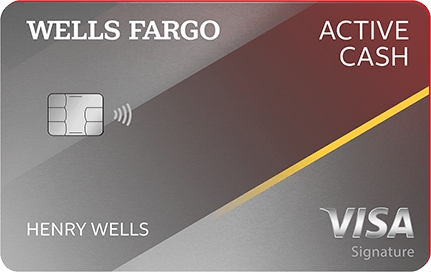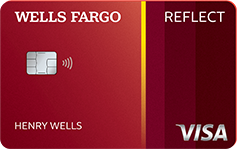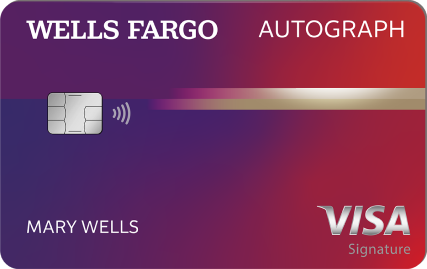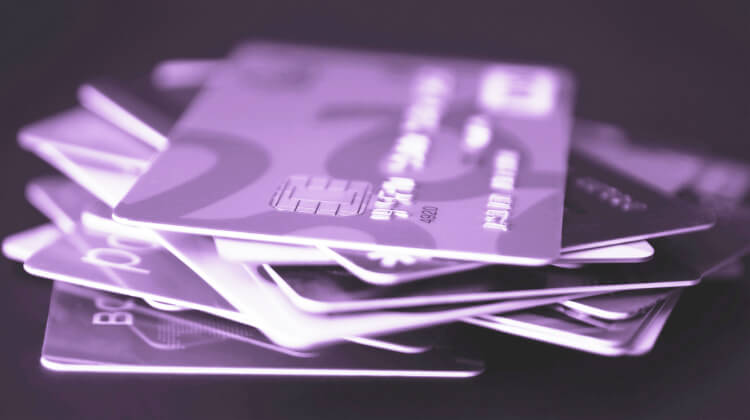
What are the benefits of multiple
credit cards?
Like most things in personal finance, the number of credit cards you “should” have really depends on your financial situation and credit standing. So-called “rewards hackers” may open new cards every few
months. Meanwhile, the average cardholder may prefer owning just one or two cards.
Figuring out your personal number may boil down to the following:
- How well you manage the credit cards you already have
- The current state of your credit score
- What you hope to gain from having additional cards (e.g. access to more credit or rewards)
Learn more about how owning multiple cards affects your credit, pros and cons to consider, and strategies for managing your cards.
How many credit cards is a good amount to have?
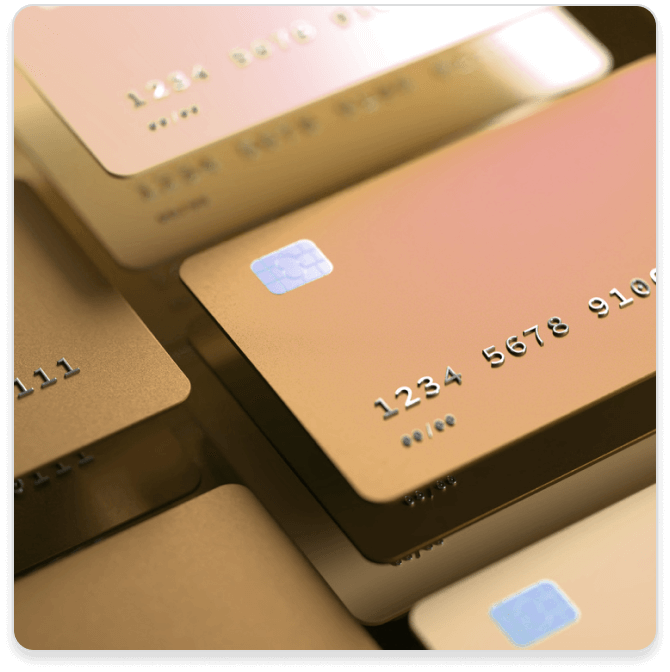
When it comes to the ideal number of credit cards to own, there are different schools of thought. Some believe that having just one card is best to avoid getting into debt trouble. Others juggle several cards and spend strategically to take advantage of different rewards programs and benefits.
Your answer depends on your personal finance habits and financial situation. Credit cards are typically used as a tool to build credit and perhaps earn rewards and perks, while avoiding credit card debt. This is why the “ideal” number of credit cards differs for everyone.
For example, if you’re fairly new to credit or have experienced financial struggles, you may want to reduce your total number of credit cards. On the other hand, if your credit score is strong, you pay your bills in full each month, and you have the discipline to maximize multiple cards like rewards credit cards or cash back credit cards, you may see value in owning several cards. It really all depends on you.
How many credit cards is too many to have?
Americans have an average of 3.84 credit card accounts, according to an Experian Study. Whether or not that’s an ideal number for you, again, depends on your needs. There’s technically no such thing as too many credit cards but opening too many cards in a short period of time can be detrimental.
Credit scoring algorithms will penalize you for seeking multiple lines of credit within a few months. The credit bureaus may see this behavior as a red flag that you’re having cash flow problems.
Does having multiple credit cards hurt your credit score?
The number of credit cards you have may impact your credit score indirectly, and not always in a bad way. Factors like your credit utilization rate (which measures how much available credit you use), new credit requests, and the length of your credit history all play a role in credit scoring.
In terms of credit utilization ratio, more available credit can potentially be a good thing.
Here’s an example: If you have one credit card with a $3,000 credit limit and a $1,500 balance, that means you’re utilizing 50% of your available credit. Per Experian, FICO and other credit scoring models favor cardholders who keep their utilization below 30% and as close to zero as possible. A 50% utilization may reflect negatively on your score.
Now let’s say instead of just one card, you have two cards with $3,000 limits. If you spend the same $1,500 but split your purchases between the cards so you owe $750 on each, your utilization drops to 25%. In this example, two cards can actually be better for your credit score.
You may be thinking, “Great! I’ll just open a couple more cards so my utilization will go down.” Remember that credit scores also decrease slightly when you request new credit. Also, if you apply too many times in a short period of time, lenders may become hesitant to approve you, and your credit score can suffer.

Pros of having multiple credit cards

If you’re looking to apply for new credit, here are some of the advantages of carrying multiple credit cards.
Ability to spread out your purchases so balances stay low
As described above, keeping your credit utilization low is easier when you have more available credit. Even during months when you make a lot of purchases, having more than one card lets you spread the spending around. If you barely use a few of your cards, the fact that they’re open can still be good for your credit score, because they count toward your total available credit.
Demonstrate responsible credit use to lenders
The ability to manage more than one credit card account and maintain a positive payment history looks great on your credit reports. Lenders may feel more confident working with you, knowing you’ve handled multiple credit lines well.
Rewards for different spending habits
With so many types of rewards credit cards, you may want to take advantage of more than one program to maximize your various spending. For example, if you spend a lot on groceries, you may want a cash back card with bonus categories for supermarket spending and other everyday purchases.
However, you may also want to use a travel rewards card to help offset the cost of your vacations. Also, if you travel frequently, you may get more from a co-branded airline credit card or hotel credit card.
Enjoy a variety of card benefits
Some credit card issuers offer features like extended warranties, travel insurance, cell phone protection, special discounts on partner services, balance transfer offers, or 0% introductory APR. You may be able to access more of these perks with multiple cards from different credit card companies — if chosen strategically through thorough research.

Cons of having multiple credit cards

Having multiple credit cards may not work for everyone, particularly those who struggle with personal finances. Here are some potential downsides to consider.
More due dates to remember
Payment history is the most important factor impacting your credit score, according to Experian, so it’s important to exercise caution when juggling multiple cards. Accidentally forgetting to make a payment or two can damage your credit score. Tip: Consider setting up automatic payments from your bank account for at least the minimum amount due on all of your accounts to help avoid late payments.
Requires effort to earn certain rewards
Whether it’s remembering to opt into quarterly bonus categories, keeping track of which card offers the best rewards rate for a particular type of purchase, or understanding various redemption options, staying on top of changing offers on several cards requires time and attention.
Potential for overspending
With great credit power comes great credit responsibility. There is the potential to run up balances on several cards with high interest rates, which can lead to struggles paying down the balances.

Managing different credit cards

People often focus on finding the one best credit card, but in some cases, it makes more sense to choose a few different credit cards that collectively help you achieve your financial goals. If you decide to go that route, it’s important to manage each credit card account carefully. Consider these strategies.
Monitor credit card balances
Of course, you don’t want to let debt get out of control and beyond your means to pay it back.
Take the time to understand rewards programs
Every rewards card is different, and you may lose out on potential value because you forget to opt into a benefit or weren’t aware of program changes.
Evaluate your cards each year
You may outgrow certain credit cards because your lifestyle changes. For example, if you move across the country, you may consider applying for a new credit card with travel rewards because you plan to frequently travel back home.
Keep tabs on your credit reports and credit score
The more credit card accounts you have, the more potential there is for fraud or identity theft, especially if you don’t monitor your accounts regularly. You can obtain your credit reports and credit scores for free, often from the card issuer, so take advantage of those tools.

Is it good to have multiple credit cards?

Whether or not it’s good to own multiple credit cards depends on your spending style and ability to manage your finances. The bottom line is that credit cards can help you build credit and offer conveniences and perks that you can’t get from only using cash.



